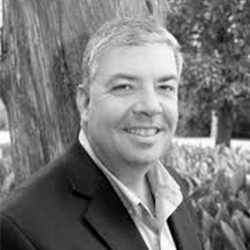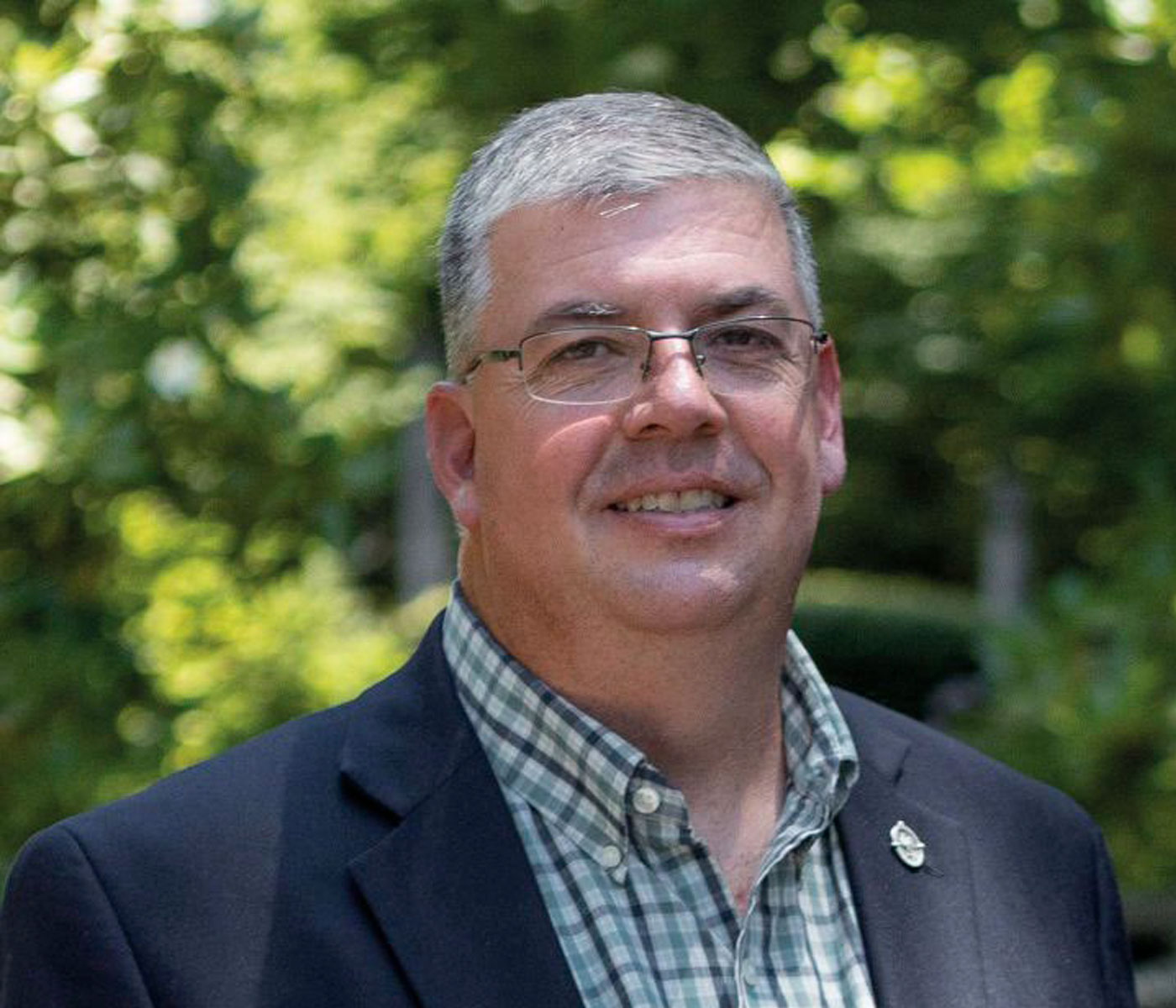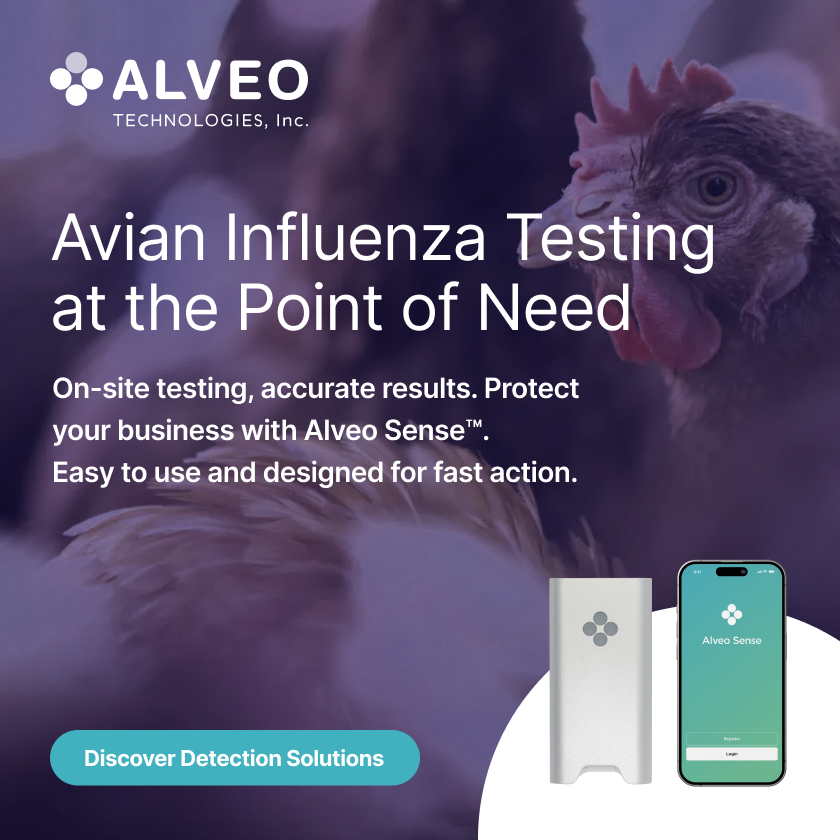Content available at: Indonesia (Indonesian) Melayu (Malay) ไทย (Thai) Tiếng Việt (Vietnamese) Philipino
QUESTIONS FOR THE PSA’S PRESIDENT, BRIAN FAIRCHILD
On the occasion of the 2024 PSA Annual Meeting, organized by the Poultry Science Association (PSA), which was held July 15-18, 2024, at The Galt House Hotel in Louisville, Kentucky (USA), AviNews International had the privilege of interviewing Dr. Brian Fairchild, President of the PSA and Professor and Extension Poultry Specialist in the Department of Poultry Science at the University of Georgia.
What is the Poultry Science Association (PSA) about?
To me PSA is several things.
- First it is a society involved in research in the poultry sciences (physiology, management, nutrition, genetic, immunology, engineering, microbiology, etc.) and dissemination of that knowledge through publication of two journals and the annual meeting.
- A second is an opportunity to network with members of the society that are involved in all the poultry sciences.
What can attendees expect from 2024 PSA Annual Meeting to be held in Louisville, USA?
An opportunity to learn about recently completed and ongoing research in the poultry sciences. In addition, it will be a chance to meet new people working in these areas as well as an opportunity to catch up with colleagues and learn what they are working on as well.
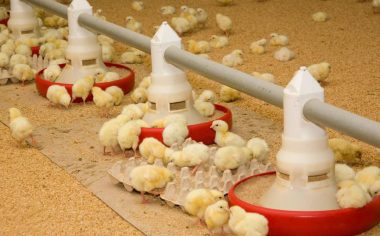
What was your year as PSA president been like?
It has been busy, educational, productive and enjoyable. Our PSA members serve on several committees and many of these committees have been productive this past year.
- Our journals Poultry Science and Journal of Applied Poultry Research continue to do well and have both seen a decrease in time from submission to first decision as well as overall time to publication.
- With the help of several committees PSA is set to offer our first professional development conference for our members later this year (October 28-29).
What is the vision of the PSA for the future of poultry farming in USA?
This is a tough one. I would say that, as a whole, the PSA vision is help poultry companies and farmers continue to raise healthy birds in an optimal environment so that we continue to provide economical and nutritious poultry meat and egg products for consumers.
What challenges is the American poultry industry currently facing and how is the association addressing these challenges?
This will vary depending on who you ask. There are a number of pressures from regulatory, food safety, bird health, bird welfare and financial points that the poultry industry is facing.
- One that I see as a growing concern is education. With each generation more consumers are not familiar with how their poultry meat and egg products are produced.
- Unfortunately, many go to the internet for information on this and the material they read is not always focused on the facts.
- Unfortunately, they do not realize this.
Currently PSA handles this through published quality research in its two journals. Our members comprise poultry scientists that work in the poultry industry and in academia.
- Together they work to provide basic poultry knowledge to students at all levels of education (preK through 12 and college) and industry, farmers and consumers.
What initiatives or programs is the association promoting to foster research and development in the field of poultry farming?
Continue to provide information on current research that can be implemented to improve bird health, growth, efficiency and food safety through better nutrition, management and protection from disease.
How does it collaborate with other organizations and institutions at the American and international level to promote the interests of poultry farming?
Joint meetings like the Latin American Scientific Meeting in Brazil in October 2024, World Poultry Congress in 2026, and the joint meeting with the AAAP in 2027.
Could you tell us about the new world trends in poultry environmental control?
Conserving energy (electricity and gas usage) while still maintaining optimal environmental conditions for housing and rearing the birds. Utilizing new technologies to do a better job of early identification when there are issues developing whether it be subpar environmental conditions or bird health related.
Tell us about your work on air quality in poultry farms
The UGA Poultry Housing lab has looked several aspects of air quality that include CO2, CO, NH3, dust and moisture in terms of air quality at methods as well as technology to reduce dust and lower ammonia concentrations.
- I would say our primary focus is on moisture control. If the moisture load in a poultry house is maintained well all of the air quality parameters mentioned above will be in acceptable range.
- We have tested numerous types of sensors including but not limited to ammonia, CO2, water usage, humidity and bird weight scales. Much of our work focuses on methodology/management methods to control moisture as economically as possible for farmers.

What new developments are there in lighting programs in modern poultry farming?
Recently our former PhD student, Garret Ashbranner, focus his work for his dissertation on looking at providing a dark period to chicks starting on the first day of placement at the farm.
- Traditionally, chicks have been provided 24 hours of light with the thought that it would help get them off to a better start by finding feed, water and heat sources.
Our work demonstrates that broilers do just as well when provided a 4- or 6-hour dark period in the first week after being placed on the farm.
- Pen trials suggested that there might be some weight and FCR benefits but this was not observed in our 3 field trials. However, there were no negative impacts on bird performance (weight, FCR, livability) in the field trials.
Not surprising is that the birds provided a dark period had higher melatonin levels than those in the control with 24 hours of light in the first week.
The interesting observation was that the melatonin levels in the birds with dark period remained higher than the controls even after the control birds were put on a dark period at Day 7.
- While there were no differences in broiler performance, our data indicated that there was better livability and less lame birds at the end of the flock. This work shows that producers can provide chicks a dark period without any detrimental impacts on flock performance.
Have you worked on water quality issues? What new technologies exist today to ensure that our birds have the best water quality?
Yes. We have done several projects to collect data and share with producers on how to properly design and manage drinker systems. Metering pump technology continues to improve to deliver the right amount of product in the water.
- I have done numerous presentations on water quality, its impact on poultry house drinker and evaporative cooling equipment as well as bird performance.
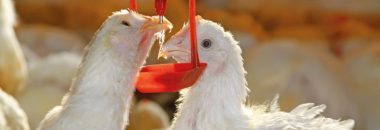
We know that you have worked on important principles of evaporative cooling, what can you tell us about it?
First, this is that many producers overuse it. It is the air speed that is going to cool the birds. The evaporative cooling system enhances the ability of the air movement (tunnel ventilation) to cool the birds.
- The thing that producers need to remember is that for every degree of cooling provided by the evaporative cooling system the relative humidity in the house is going to increase. This makes it more difficult for the birds to lose heat from respiration, a primary way that birds lose heat as they do not sweat.
- The increased humidity can also lead to higher moisture loads in the house, which as we discussed in an earlier question is the root of many environmental, bird health/wellbeing and bird performance issues.
Please tell us about weight gain vs. body temperature in broilers
Hot bird will not eat as much as birds with normal body temperature. We recently did a project that demonstrated that birds with body temperature of 110 oF (normal is 106 oF) did not gain any weight during the weeklong observation period of our field study on market age broilers.
Is it true that uneven bird distribution can prove costly?
Absolutely. The one assumption that is made in poultry house design and management is that the birds are evenly distributed down the length of the poultry house.
- We continue to look at new options for migration fences to help keep birds evenly distributed throughout the flock.
